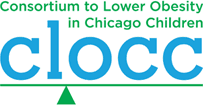Policy and Advocacy
 Many evidence-based approaches to obesity prevention must be supported by policy at the city, state, or federal levels because they are beyond the control of any one family, organization, or community. Policies can ensure that community environments support healthy eating and physical activity and they can reduce obesity disparities by ensuring that all communities have access to such environments. They can set stronger standards for food served in child-serving institutions (e.g., schools, licensed childcare). They can limit children’s exposure to the marketing of unhealthy foods and beverages. Policies can also establish incentives for healthful consumer behavior and helpful business practices.
Many evidence-based approaches to obesity prevention must be supported by policy at the city, state, or federal levels because they are beyond the control of any one family, organization, or community. Policies can ensure that community environments support healthy eating and physical activity and they can reduce obesity disparities by ensuring that all communities have access to such environments. They can set stronger standards for food served in child-serving institutions (e.g., schools, licensed childcare). They can limit children’s exposure to the marketing of unhealthy foods and beverages. Policies can also establish incentives for healthful consumer behavior and helpful business practices.
CLOCC’s policy priorities are established through participatory processes that engage diverse CLOCC partners and comprehensive reviews of the most recent evidence and best practices from around the nation and the world. These priorities drive our decision making about policy efforts we will lead, positions we will take on legislative issues, and calls-to-action we issue to our constituents.
CLOCC works with city and state government agencies to ensure that the most effective or promising strategies are included in public sector responses to the obesity epidemic.
For more information about CLOCC Policy Priorities, please contact info@clocc.net.

